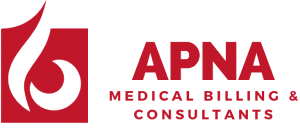
How Medical Billing Services Improve Cash Flow & Cut Administrative Costs
Managing a thriving healthcare practice is a delicate balance. Between patient care, regulatory compliance, and operations, billing and administrative processes often become burdensome. From inaccurate claims submissions to denied reimbursements to steep administrative overhead, the financial health of healthcare providers is often at risk.
This is where medical billing services come in. They help streamline revenue management, improve cash flow, and reduce operational costs, enabling providers to focus on what truly matters—patient care.
In this post, we’ll break down how medical billing services drive financial stability and efficiency in healthcare settings—including independent practices, specialty clinics, and hospitals.
Understanding Medical Billing Services
What Are Medical Billing Services?
Medical billing services involve the systematic handling of healthcare providers' billing and reimbursement processes. Companies specializing in this field take over the task of coding diagnoses and treatments, submitting claims to insurance companies, and following up on outstanding balances.
By outsourcing these tasks, providers gain access to expertise, cutting-edge technology, and cost-effective solutions, relieving their in-house teams of the complexities of billing administration.
How Medical Billing Services Work
These services typically encompass several core functions, such as patient registration, medical coding, claim submissions, payment postings, and outstanding payment follow-ups. Comprehensive medical billing companies also provide analytical reporting that helps optimize a practice’s financial performance over time.
Key Role in Revenue Cycle Management (RCM)
Medical billing companies are integral to revenue cycle management (RCM)—the process of tracking patient care from initial registration to final payment collection. By identifying inefficiencies and resolving them proactively, billing services ensure steady cash flow and reduced payment bottlenecks.
How Medical Billing Services Improve Cash Flow
A. Faster Claims Processing
Manual claims submissions often lead to delays and errors that affect revenue. By automating claims functionality, medical billing services minimize errors in coding and documentation, drastically reducing claim denials or rejections. This ensures faster approvals and payments.
B. Timely Reimbursement from Insurance Companies
Professional billing companies optimize coding procedures and ensure that claims follow updated compliance standards. This results in a higher acceptance rate for initial claim submissions, meaning healthcare providers spend less time waiting for reimbursements.
C. Reduction in Bad Debt & Outstanding Payments
Late payments can cripple a practice’s finances. Medical billing services implement robust patient billing systems, offering digital bills and tailored payment plans to make it easier for patients to pay on time. Their follow-up strategies help keep delinquent accounts in check, lowering bad debt.
D. Better Revenue Cycle Management
Medical billing companies use data-driven insights to monitor your practice’s financial health. They pinpoint bottlenecks in the payment process—be it coding errors, delayed submissions, or patient payment gaps—and resolve them to enhance cash flow.
Cutting Administrative Costs with Medical Billing Services
A. Reduction in Staffing Costs
Outsourcing medical billing eliminates the need to maintain a dedicated in-house billing team. This saves on salaries, recruitment, training, and employee benefits. Small practices, in particular, find this especially cost-effective.
B. Minimizing Billing & Coding Errors
Errors in billing and coding come with a heavy cost—denied claims, delayed reimbursements, and even penalties due to compliance issues. Billing services deploy skilled professionals trained in HIPAA, CPT, and ICD-10 compliance to ensure accuracy and adherence to regulations.
C. Lower Technology & Software Expenses
Investing in and maintaining billing software can be costly for practices of all sizes. Medical billing services provide access to the latest software and tools without the need for large-scale financial investment.
D. Improved Compliance & Legal Protection
Keeping up with constantly evolving healthcare regulations is a challenge. Professional billing services stay updated with changes to prevent regulatory violations, audits, or penalties, offering peace of mind.
Additional Benefits of Using Medical Billing Services
Enhanced Patient Experience
Simplified and accurate billing reduces confusion for patients. Transparent pricing and flexible payment options make it easier for patients to settle their balances, fostering trust and satisfaction.
Focus on Core Healthcare Services
When healthcare staff is no longer bogged down by billing admin, they can redirect their attention to delivering high-quality patient care. Physicians and administrators report higher job satisfaction when these operational burdens are handled externally.
Scalability & Flexibility
For growing practices, outsourcing medical billing services allows scalability without major disruptions. Whether it’s handling an increased patient load or expanding to new locations, these services adapt to evolving needs.
Recap and Next Steps
Healthcare providers face unique challenges in balancing financial stability with operational efficiency. Medical billing services offer solutions that improve cash flow, reduce administrative costs, and ensure compliance with strict regulations.
By leveraging these services, practices can streamline workflows, minimize errors, and focus on delivering exceptional care. Whether you run an urgent care center, manage a dental clinic, or oversee a large multi-specialty hospital, outsourcing your billing processes could be the key to unlocking long-term financial stability and operational growth.
Consider partnering with a trusted medical billing service provider today to improve your practice’s efficiency and bottom line.

